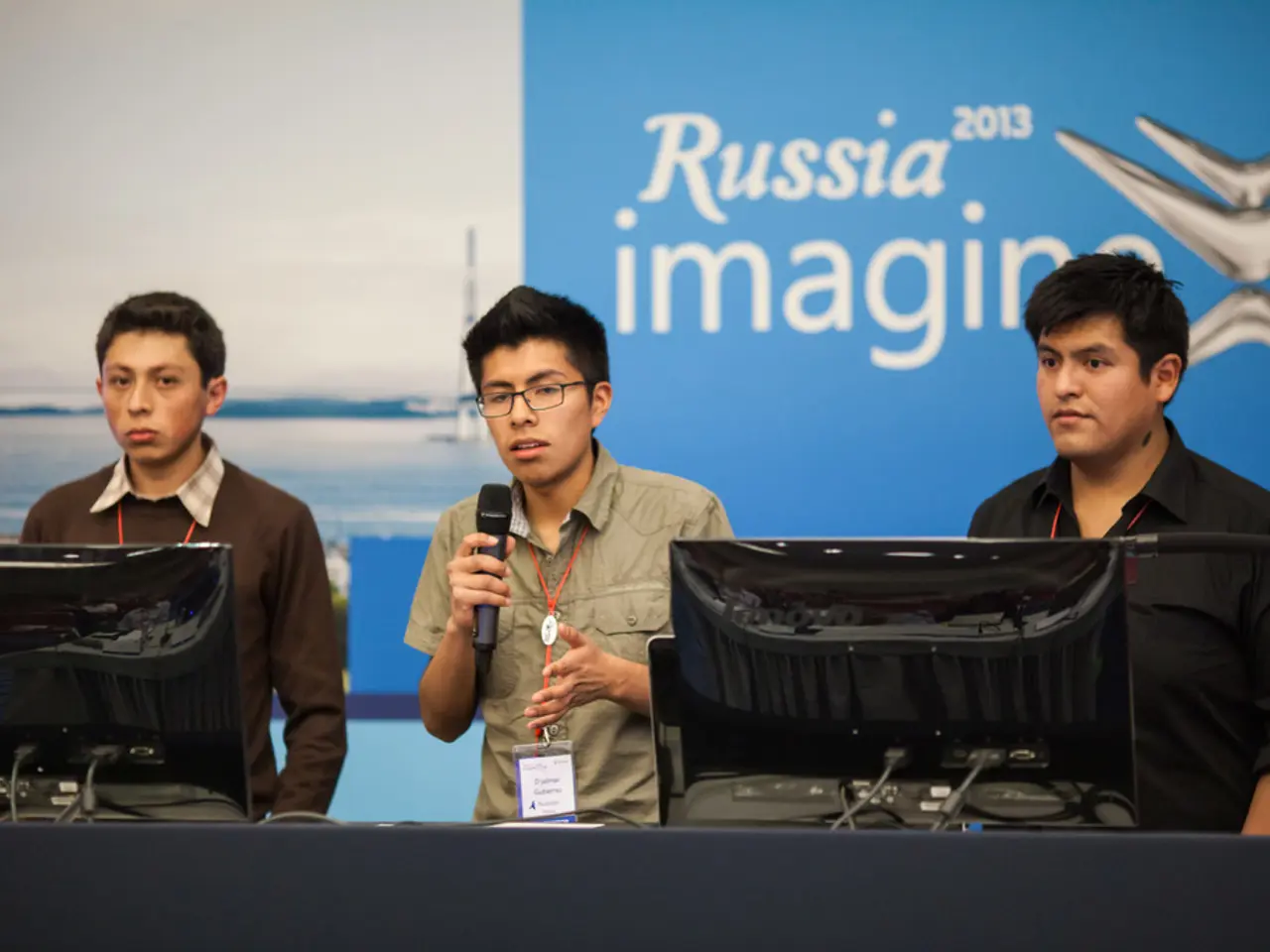Trial underway for former aide of German politician, accused of spying for China
German Trial Highlights Extensive Chinese Espionage in Germany
A high-profile trial in Germany is shedding light on China's extensive espionage activities in the country, with a former aide to a German far-right party MEP, Jian Guo, standing accused of spying on behalf of China [2][3].
The case involves allegations of spying on Chinese dissidents and opposition figures within Germany, linked to the far-right party AfD (Alternative für Deutschland) [2][3]. Jian Guo, a German national, is accused of posing as a critic of the Chinese government on social media to gain contacts among its opponents [1].
Chinese intelligence operations in Germany are broad and sophisticated, involving recruitment attempts, cyberattacks targeting government and corporate entities, and efforts to extract insider information from politicians [1]. This espionage is significant enough that German officials estimate economic losses between 20 and 50 billion euros annually due to Chinese economic spying [1].
The Jian Guo case exemplifies how Chinese espionage activities intersect with German political parties, particularly targeting individuals connected to nationalist movements such as AfD [4][2]. This trial sheds light on China's broad espionage strategy in Germany, spanning cybercrime, industrial spying, and political infiltration [1][3].
Jian Guo is also accused of being the handler for a second alleged operative, Yaqi X, a Chinese national who is accused of spying on German defense companies [5]. Yaqi X worked at a firm that provided logistics services to Leipzig airport and is accused of helping Guo access information on flights and passengers [5].
Yaqi X's lawyer stated that Yaqi X did not know that Guo was a spy, but became suspicious when he asked for details on military movements at the airport [6]. Prosecutor Stephan Morweiser stated that the case is "without precedent" in terms of Chinese spying activity in Germany [7]. Both defendants have been in detention since they were arrested last year.
The trial of Jian Guo and Yaqi X is expected to last until late September. Alexander Gauland, also known as Krah, has been called to appear as a witness in the trial. Krah, a former MEP and the AfD's top candidate for European elections, is under investigation by prosecutors in Dresden on suspicion of money laundering and corruption during his time as an MEP [8].
Krah was initially the AfD's top candidate for European elections but was excluded after causing controversy with comments. He was welcomed back into the AfD fold for this year's German election and now sits as one of its MPs in parliament [9].
Guo's lawyer acknowledged that "it can't be ruled out that some of (Guo's) interlocutors belong to intelligence agencies" [10]. The timing of Guo's arrest could have been "political" as it came in the run-up to European Parliament elections in which Krah was the AfD's top candidate [11]. Investigators have seized records of conversations Guo had with Krah and other AfD politicians about the private life of party co-leader Alice Weidel [12].
This trial underscores the importance of vigilance in protecting national security and the integrity of political processes from foreign interference. The case serves as a reminder that espionage activities can take many forms, including the infiltration of political parties and the exploitation of social media for intelligence gathering purposes.
The trial of Jian Guo and Yaqi X, accused of spying on behalf of China, highlights the intersection of Chinese espionage activities with the German political landscape, particularly the far-right party AfD. This case is significant as it demonstrates how these activities can extend to political parties and the exploitation of social media for intelligence gathering purposes.
The trial further underlines the relevance of maintaining vigilance in safeguarding national security and the political process integrity against foreign intrusion, emphasizing that espionage can manifest in various forms, including political party infiltration.








